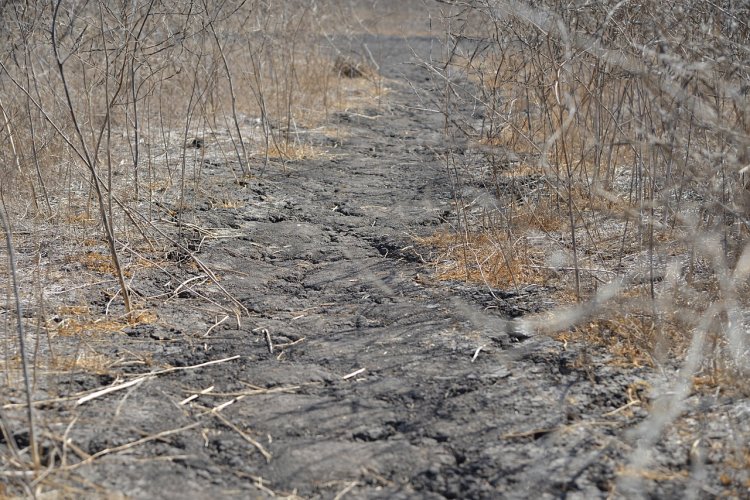Jafarbig Panj-Bozi: a village drowning in a water crisis

The village of Jafarbig Panj-Bozi, one of the remote areas of Rabat Sangi District in Herat, has been struggling with a severe water crisis for years. Located 25 kilometers from the district center, the village is home to 300 families. While neighboring villages have relatively better access to water resources, Jafarbig Panj-Bozi, due to its elevated geographic position and climate change, is facing an escalating water shortage. Residents are forced to travel long and difficult distances to obtain even a small amount of water. This crisis has worsened in recent years, putting surrounding villages at risk of water scarcity as well.
Most houses in Jafarbig Panj-Bozi are situated on hilltops, where wells have dried up due to climate change and a lack of proper infrastructure, leaving no trace of water. At the base of the hills, near the river, only five wells still contain water, but they are far from sufficient to meet the needs of 300 families. Every day, especially women and children, descend from the hills carrying buckets and gallons, walking several kilometers, and waiting in long queues to fetch a few liters of water. Whether in the scorching heat of summer or the freezing cold of winter, standing in long lines for water has become a part of their daily routine.
Drought, irregular and sparse rainfall, soil erosion, and inadequate infrastructure have worsened the water crisis in this region. Besides the hardship of fetching water and the loss of time, this crisis has also had severe health and hygiene consequences. Doctors warn that the lack of clean drinking water, particularly among children, has led to an increase in illnesses such as diarrhea and gastrointestinal infections. The absence of sufficient healthcare facilities has put many families at serious health risk.
Villagers say that multiple wells have been dug on the hilltops near their homes, but none have reached water at any depth. The last well, dug near the village’s government-run clinic, dried up within a few days. Although accessing water sources seems easier at the base of the hills, seasonal floods during the rainy months pose a serious threat to residential structures. As a result, residents feel they have no choice but to continue living on the hills despite the worsening water crisis.
The men of Jafarbig Panj-Bozi spend most of their time working in agricultural fields outside the village. These fields, located away from the hills, rely on seasonal rains to cultivate wheat and chickpeas. However, the houses on the hills, due to their elevated location, are deprived of this natural blessing, leaving the burden of fetching water on the shoulders of women and children.
Abdul Qayyum, a 53-year-old resident, says, “The men leave early in the morning to work in the fields, so the women and children have to stand in line for water from dawn. Some carry water on foot, while others use donkeys to haul gallons up the hills.”
He adds, “Some days, we don’t even get our turn. Fifty or sixty families gather around a single well. We fear that these five wells might dry up too, making things even worse.”
As residents worry about the worsening water crisis, Ahmad Khan, the village elder, points out that a freshwater spring located 13 kilometers from the village could solve the problem. However, the long distance and lack of infrastructure have made accessing this water source difficult. He emphasizes that if the spring were connected through a pipeline, it could meet the water needs of the entire village. So far, no action has been taken to implement this project.
The water crisis is not limited to Jafarbig Panj-Bozi; many remote areas in Afghanistan are also suffering from similar issues. According to the United Nations Office for the Coordination of Humanitarian Affairs (OCHA), the depletion of water resources in Afghanistan has left 39% of households struggling with a lack of drinking water, significantly impacting their lives.
